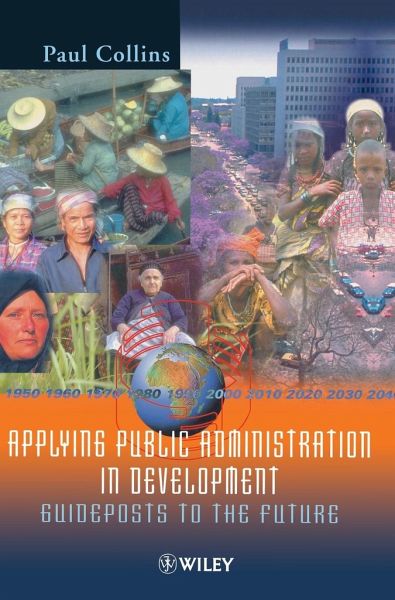
Applying Public Administration in Development
Guideposts to the Future
Herausgeber: Collins, Paul
Versandkostenfrei!
Versandfertig in über 4 Wochen
319,99 €
inkl. MwSt.

PAYBACK Punkte
160 °P sammeln!
This landmark publication addresses key governance issues in the management of development, drawing seminal papers from the 1999 Jubilee conference proceedings of the journal Public Administration and Development. It fills a major gap in the literature and provides a timely review of the state-of-the-art which is both historically-grounded and forward looking. The book is divided into three parts: * Part 1 poses three challenges spanning past, present and future: the transformation of state, markets and civil society; institutional performance; and humanising globalisation. * Part 2 focuses on...
This landmark publication addresses key governance issues in the management of development, drawing seminal papers from the 1999 Jubilee conference proceedings of the journal Public Administration and Development. It fills a major gap in the literature and provides a timely review of the state-of-the-art which is both historically-grounded and forward looking. The book is divided into three parts: * Part 1 poses three challenges spanning past, present and future: the transformation of state, markets and civil society; institutional performance; and humanising globalisation. * Part 2 focuses on the great contemporary forces shaping public administration and development: state, market, and civil society. It uses case studies to draw conclusions and suggest areas for further research. * Part 3 addresses important themes for the future: states and economies in transition, conflict management and resolution, poverty and local development, governmental integrity and trust. This book presents an authoritative overview of the field which will be essential reading for students, researchers, consultants and practising civil servants alike.












